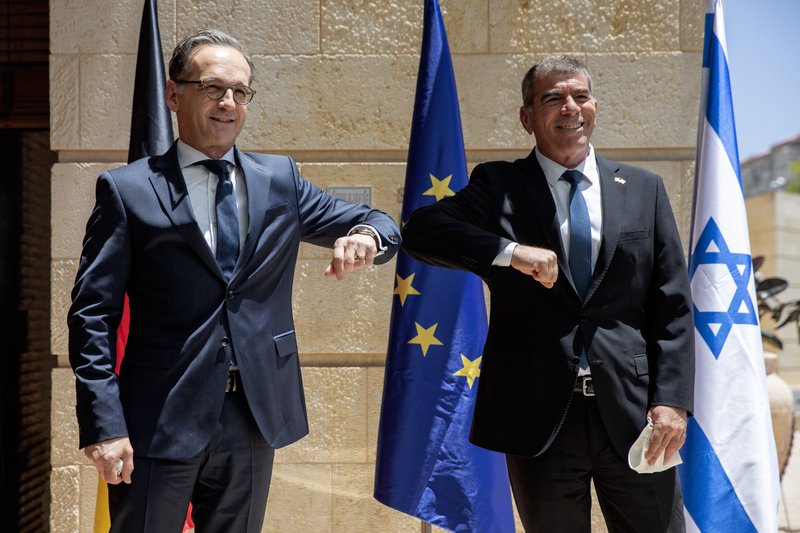
JERUSALEM (AP) — Germany’s foreign minister was holding talks with his counterpart in Israel on Wednesday to convey Europe’s stiff opposition to Israeli plans to begin annexing parts of the West Bank.
The visit to Jerusalem, Heiko Maas’ first trip outside of Europe since the outbreak of the coronavirus pandemic, comes just weeks before Israel intends to extend its sovereignty over Jewish West Bank settlements, in line with President Donald Trump’s controversial Mideast plan.
It has come under harsh criticism from some of Israel’s closest allies, including Germany, who say that unilaterally redrawing the Mideast map would destroy any lingering hopes for establishing a Palestinian state and reaching a two-state peace agreement.
“Many people in Israel — and also in the European Union — are preoccupied with the current developments in the Middle East peace process and the possible annexation plans,” Maas said prior to his departure. “Germany remains committed to the goal of a negotiated two-state solution. We will also talk about this and I will underline that we are ready to support all initiatives to revive talks between Israelis and Palestinians.”
Germany, already a key European power broker, will be taking over the rotating presidency of the Council of the European Union and assuming the presidency of the UN Security Council next month.
After meeting with Israeli Foreign Minister Gabi Ashkenazi, Maas is also scheduled to consult with Prime Minister Benjamin Netanyahu and Defense Minister Benny Gantz. Later in the day, he will travel to neighboring Jordan to meet his counterpart there and hold a conference call with Palestinian leaders.
The US plan envisions leaving about one third of the West Bank, which Israel captured in 1967, under permanent Israeli control, while granting the Palestinians expanded autonomy in the remainder of the territory. The Palestinians, who seek all of the West Bank as part of an independent state, have rejected the plan, saying it overwhelmingly favors Israel.
In response, they have cut off key security ties with Israel and say they are no longer bound to agreements signed. The moves have raised concerns of a return to violence if annexation is carried out. Israel’s defense minister has urged the military to hasten preparations for what could be fierce Palestinian protests against the move.
The proposal also faces opposition in Israel, where many fear that annexation is a step that could lead to the creation of a single bi-national state with the Palestinians. Even some hard-line settlers oppose the plan, saying it doesn’t go far enough.
But Netanyahu appears eager to press forth before the US election in November, when Joe Biden, the presumptive Democratic nominee who has said he opposes annexation, could replace Trump.
Netanyahu has lauded Trump’s nearly blanket support for his policies and hailed annexation as a historic opportunity to establish Israel’s permanent borders, and retain control of strategic frontiers without having to evacuate a single settler. Previous peace plans have all included calls for far greater Israeli concessions.
____
Associated Press writer Frank Jordans in Berlin contributed to this report.
Image: Israeli Foreign Minister Gabi Ashkenazi, right, welcomes his German counterpart Heiko Maas with a elbow bump due to the coronavirus outbreak, prior to their meeting in Jerusalem, Wednesday, June 10, 2020. (AP Photo/Oded Balilty)




